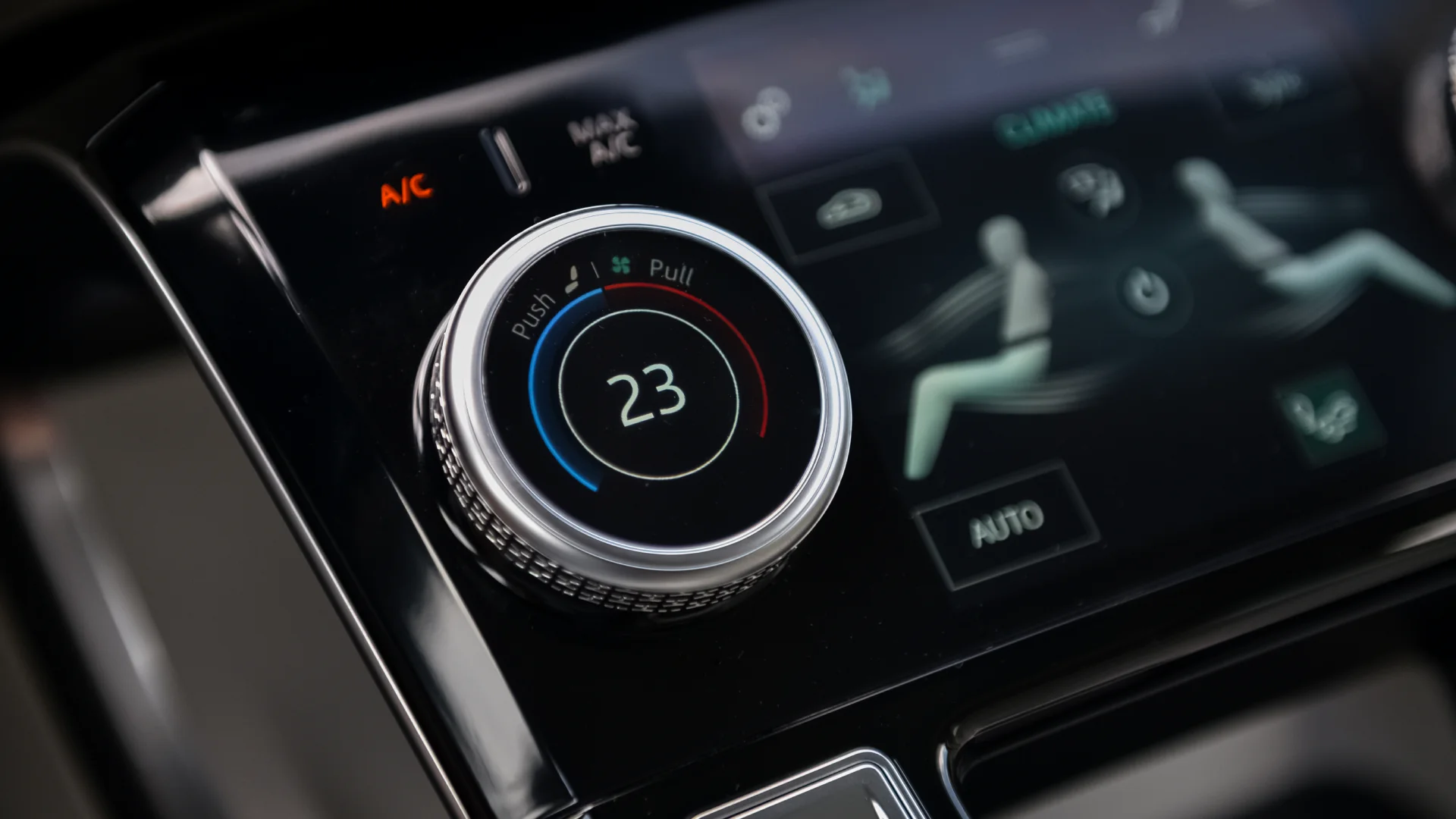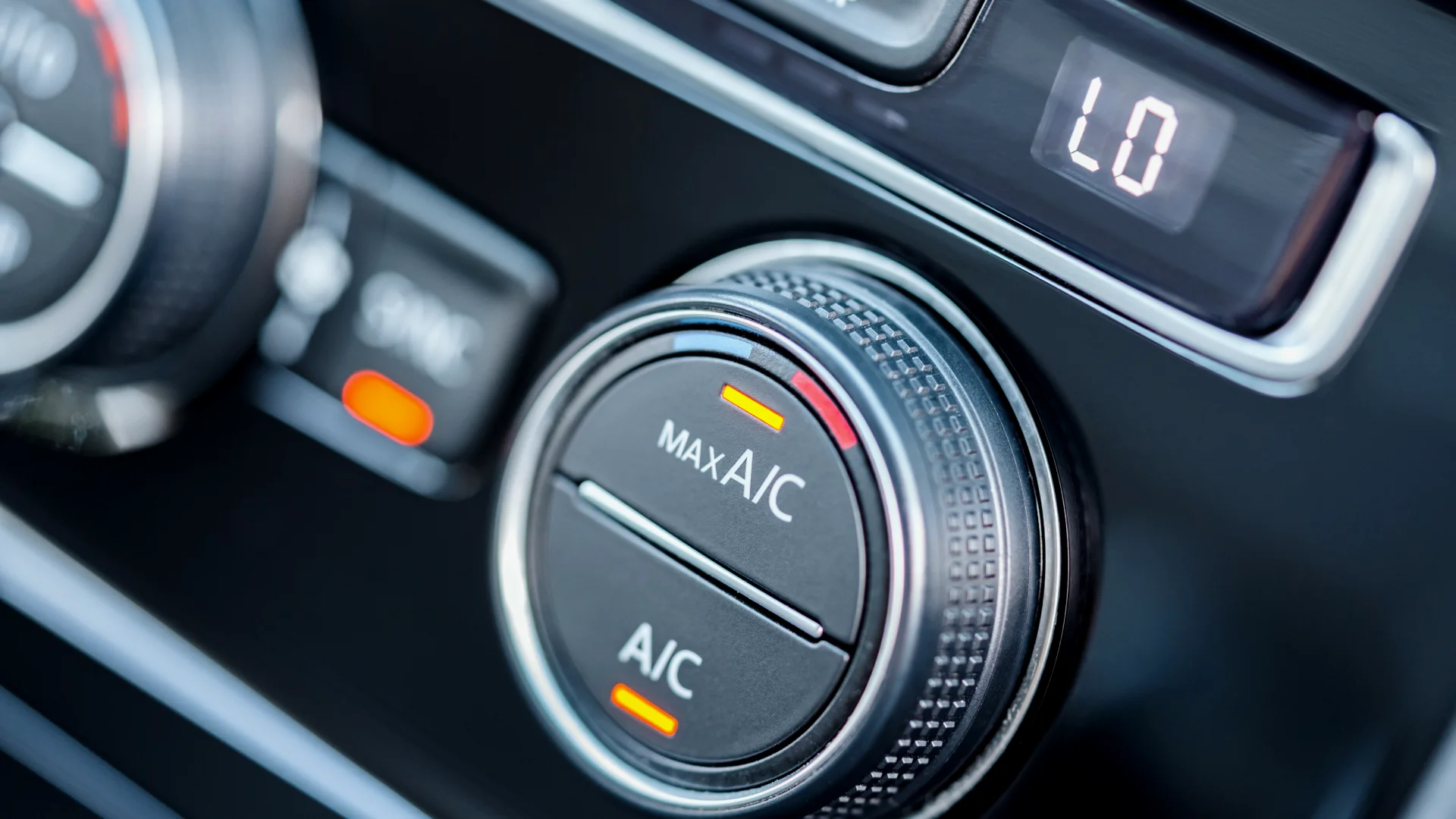In the ongoing debate over fuel efficiency and the factors that influence it, one common question that arises is whether the use of air conditioning (AC) in vehicles leads to higher fuel consumption. Many drivers find themselves toggling their air conditioning systems during the warmer months or in climates where comfort without AC seems unimaginable. However, the impact of air conditioning on fuel economy is a topic worth exploring to understand how you can optimise your vehicle’s performance and fuel efficiency. This article delves into how air conditioning systems work in vehicles, their effect on fuel consumption, and tips to use your AC system wisely.
In Short
Yes, using air conditioning uses between 3% to 20% more fuel than driving without air conditioning.
How Does Air Conditioning Work in Vehicles?
Vehicle air conditioning systems operate on a refrigeration cycle that requires energy, usually drawn from the engine. The system comprises several components including a compressor, condenser, evaporator, and various controls. The compressor, which is driven by the vehicle’s engine via a belt, compresses the refrigerant and circulates it through the system. This process transfers heat from the car’s interior to the outside air, thus cooling the vehicle.
The Impact of Air Conditioning on Fuel Consumption
Direct Effects
Using air conditioning in a car does increase fuel consumption. The primary reason for this is the additional load placed on the engine by the AC compressor. When the air conditioning system is active, the compressor draws power from the engine to operate, which increases the engine’s workload and thus its fuel usage. Studies have shown that using air conditioning can reduce a vehicle’s fuel efficiency by about 3% to 20%, varying significantly with the type of vehicle, the condition of the AC system, and the driving conditions.
Factors Influencing Increased Fuel Use
Several factors can influence how much extra fuel a vehicle uses when air conditioning is engaged:
- Vehicle Size and Engine Type: Smaller vehicles and those with smaller engines tend to experience a more noticeable decrease in fuel efficiency with the use of AC, as the relative load added by the AC compressor is larger compared to that of larger vehicles with more powerful engines.
- Outside Temperature: On extremely hot days, the air conditioning system has to work harder to cool the vehicle, which leads to greater fuel consumption.
- Driving Conditions: During city driving where stop-and-go is common, the AC compressor may need to cycle on and off more frequently, which can lead to higher fuel consumption compared to continuous running on highways.
- System Maintenance: An air conditioning system that is not functioning efficiently due to lack of maintenance or old refrigerant can draw more power from the engine, thereby increasing fuel usage.
Tips for Efficient Air Conditioning Use
To minimise the impact of air conditioning on fuel consumption, consider the following tips:
- Use the Recirculate Setting: This helps cool the air inside the car more quickly and reduces the amount of hot outside air that needs to be cooled, easing the load on the AC system.
- Park in the Shade or Use Sunshades: By reducing the cabin temperature before you start driving, you can reduce the initial load on the AC system.
- Regular Maintenance: Ensure that your car’s air conditioning system is regularly checked and serviced. This includes checking for leaks and ensuring that the refrigerant charge is at the correct level.
- Open the Windows at Lower Speeds: When driving at lower speeds, consider using the natural breeze (by opening windows) to cool the vehicle instead of the AC. At higher speeds, closed windows reduce aerodynamic drag and the AC can be more efficient than the increased drag caused by open windows.
Conclusion
Yes, using air conditioning in your vehicle does increase fuel consumption, but the extent varies widely based on several factors. By understanding these dynamics and using your air conditioning system wisely, you can help mitigate its impact on your vehicle’s fuel efficiency, ensuring that comfort does not come at an unnecessarily high cost.







